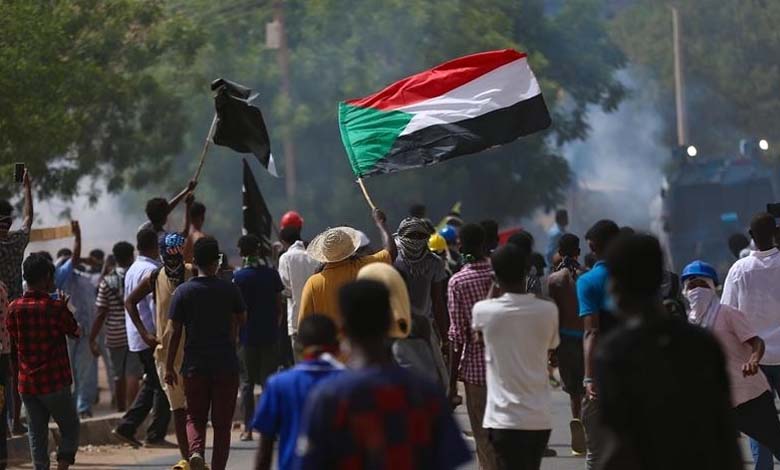Pressure from “Kizan” on the Army Leadership to Abstain from Participating in Any Mediation to Resolve the Sudan Crisis

The “Kizan” are racing to establish themselves as key players in the political arena following the end of the current Sudanese war, with leaks suggesting an imminent meeting in the Egyptian capital Cairo between a representative of the army, a counterpart from the Rapid Support Forces, and a third from the Coordination of Civil Democratic Forces “Taqaddum,” led by former Prime Minister Abdullah Hamdok, who recently visited Cairo and held extensive consultations with Sudanese party leaders, most of whom are based in Cairo, as well as with the Secretary-General of the Arab League and Egyptian intellectuals and opinion makers, as part of his efforts to end the war and initiate an inclusive political process that excludes no one except the ousted Islamist National Congress Party.
Since the outbreak of the war between the Sudanese army and the Rapid Support Forces on April 15 last year, the group has expressed supportive positions towards the army leadership, hoping to return to power riding on its back once again, as it did in 1989.
However, observers see the current circumstances as vastly different from what they were over three decades ago, with the various political faces of the Muslim Brotherhood, such as the National Islamic Front, the Islamic Movement, the National Congress Party, the Popular Congress Party, the Reform Now Party, the Justice and Equality Movement, as well as its military fronts (militias) like the Popular Defense, People’s Security, Central Reserve, People’s Police, Bura’a Bin Malik, Special Forces, and Popular Resistance, now being rejected by a broad spectrum of Sudanese people who see them as the main cause of the current violence in the country, accusing them of instigating and orchestrating the war and now running it, overshadowing the army whose leadership has adopted its political rhetoric and media line.
The Brotherhood
The group is not interested in any rapprochement between the army and the Rapid Support Forces, or between them and civilian political forces represented by parties, civil society organizations, unions, and revolutionary forces represented by resistance committees. The group, known in Sudan as “the Kizan,” has sought to obstruct any potential peace negotiations between the warring parties. They sow discord between the army and civilian political forces by spreading rumors that they serve as a political prop for the Rapid Support Forces, especially the “Taqaddum” coordination led by Abdallah Hamdok.
Analysts believe the group does this to keep the army leadership away from any political settlement that might result from negotiations between the army and the Rapid Support Forces, as such a settlement would necessarily exclude them from the future political landscape. They are seen as a coup group that does not believe in peaceful power-sharing or democracy. They are an armed group with brigades and declared militias participating in the current war, and they are the primary accused of igniting the war according to most observers.
Announced Theft
In this context, the group has begun to seize recent military advances by the army at the expense of the Rapid Support Forces on the battlefield in Omdurman, one of the three cities comprising the Sudanese capital. Videos showed the army reclaiming the Sudanese Radio and Television building, which the Rapid Support Forces had controlled for nearly a year. Leaders of Brotherhood militias, led by the Bura’a ibn Malik militia leader al-Misbah Abu Zayd, and other militia figures celebrated what they called a decisive victory over the enemy from inside the building. Observers viewed this as an announced theft of the army’s military effort, which planned and executed the operation to regain control of the important media apparatus, to suggest that the group’s fighters have the upper hand on the battlefield and portray the army as a weak and divided institution incapable of winning a battle or achieving victory without the support of the Brotherhood militias.
Rapid Support Forces Commander Mohammed Hamdan Daglo (Hemeti)
The group’s leader and former Minister of State for Culture and Information and former press advisor to ousted President Omar al-Bashir has openly expressed the “Kizan’s” dream of returning to power. He wrote on his Facebook page to celebrate the recapture of radio and television: “Our children are the ones fighting and dying now, and we return whether anyone likes it or not.” The phrase “our children” obviously refers to our militias, meaning that the man diminishes the army, seeing it as not fulfilling its duty, not fighting, and therefore not providing martyrs in the ongoing war.
Pressure on the Army
However, close associates of the group considered its recent statements, including those by Amin Hassan Omar, to be nothing more than an attempt to pressure the army leadership to refrain from going to Cairo to meet the representative of the Rapid Support Forces, who leaks suggest will be the second commander of the forces, Abderrahim Daglo (Hemetti‘s brother), and the representative of the civilian forces, Abdallah Hamdok. Or at least to bring along the army representative, who, according to leaks, will be the Deputy Chief of Staff, Major General Shams al-Din al-Kabashi (close to the Muslim Brotherhood), to see the political vision of the group for the post-war period. This vision adopts a narrative of non-exclusion of any entity or political party, including the return of the National Congress to political activity, allowing it to participate in the transitional phase and subsequent elections.
The group seeks to exploit extremely fragile security, political, and economic conditions to promote its political discourse as the only party that fought alongside the army, defending the homeland. To do this, it offered its youth “our children,” according to Amin Omar, martyrs for Sudan, while Kizan propaganda promotes the narrative that political and civilian forces, led by “Taqaddum,” are nothing more than the political arm of the Rapid Support Forces (rebels). They are mere foreign agents lacking sufficient independent political will to lead the country and manage the next phase.












